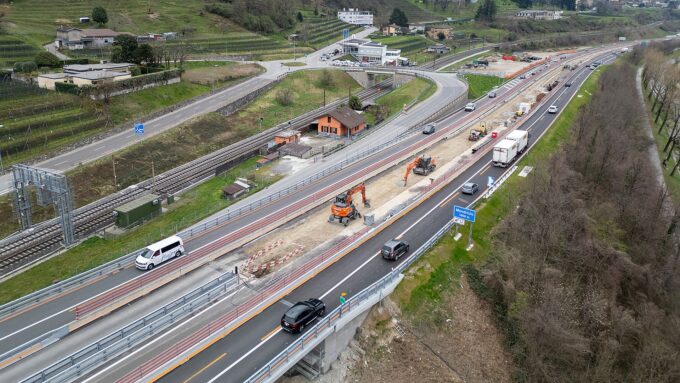More complex threats and hazards
The threat situation in Switzerland has changed, in some cases markedly, in recent years. The Federal Council's new report on Switzerland's security policy analyzes the current security environment and identifies the threats and dangers Switzerland faces and how it intends to counter them.

The new Report on Switzerland's security policy contains a detailed presentation of Switzerland's security policy environment. It analyzes global security policy trends and the threats and dangers relevant to Switzerland. The report concludes that there have been marked changes in the threat situation in recent years. This applies in particular to the sustained deterioration in relations between the West and Russia in the wake of the Ukraine crisis, the intensification of the threat posed by jihadist terrorism, and the extent of illegal activities and abuses in cyber space. The report notes that overall, the threats and dangers have become even more complex, even more interconnected and more confusing. A particular challenge for Switzerland's security lies in the combination or concatenation of the various threats and dangers.
Also part of the situation analysis are the organizations and agreements relevant to Switzerland's security policy. The international organizations (OSCE, NATO, EU, Council of Europe, UN, Interpol) and agreements (e.g. in the field of disarmament) relevant to Switzerland's security policy are described and the possibilities for increased security policy cooperation are identified.
For example crime
What does the report tell us about the crime situation, for example? According to the paper, the situation is as follows:
The number of criminal acts has declined slightly in Switzerland over the past five years, with their decrease mainly due to the decline in thefts in all categories, such as burglary, pickpocketing or vehicle theft. This area of crime is still at a high level by European standards. Mobile, well-organized groups from Eastern and Southeastern Europe as well as persons from the Maghreb are mainly responsible for this. These highly professional groups only stay in Switzerland for a short time at a time, operate on the basis of a division of labor, commit delinquent acts in varying compositions and are increasingly prepared to use violence. This volume of crime does not call into question the existence and functioning of the state; however, in addition to the serious violent crimes, it significantly impairs the population's sense of security and causes economic damage. An improvement in these forms of crime is currently not in sight. This is not least because the perpetrators are often no longer in custody but are out of the country when they can be proven to have committed the crimes on the basis of the analysis of the evidence.
Security in Switzerland is highly dependent on economic development and security in Europe. In Switzerland, comparatively high revenues can be generated from theft, trade in illegal goods (such as narcotics) and services (such as human trafficking, prostitution). Even with a positive economic development in Europe, Switzerland will remain attractive as a destination country for crime tourism and organized crime for the foreseeable future. A prolonged economic crisis in Europe could worsen the situation: In individual countries, state tasks such as border protection or law enforcement could be neglected due to economic constraints. There would also be a risk that organized crime could gain a foothold in economically weak regions and gain economic and political influence. So much for the situation in the area of crime.
What strategies?
The second part of the report describes the orientation of Switzerland's strategy (e.g. the one on crime starting on p. 95 of the 121-page report). It is about how the security policy means are to be used to achieve the goals and thus serve the security policy interests. To this end, the interests and goals are first defined and then the orientation of Switzerland's security policy strategy is described. The substantive components of this strategy are cooperation, self-reliance and engagement. It is explained what these three core concepts mean in practice and how they are applied and combined for the most effective and efficient security policy.
Based on the strategy, the means for its implementation are described. The principles according to which the security policy instruments are used and the concrete contributions they make to the prevention, defense and management of the individual threats and dangers are shown. The aim is to establish a direct link to the individual threats and dangers and to describe the tasks and the interaction of the instruments in a concrete and clear manner. Finally, it is shown which adjustments and measures are necessary or already initiated for the individual instruments in order to be able to provide the required services in the future.
Cooperation in the Swiss Security Network
The last part of the report deals with security policy management at the federal and cantonal levels and the related cooperation within the Swiss Security Network. In particular, the findings from the pilot phase and evaluation of the Swiss Security Network as well as the first Security Network exercise are presented. It is noted that the Swiss Security Network, which was launched in 2010, has basically proved its worth and reference is made to selective adjustments that were made following the evaluation and assessment of the 2014 Security Network exercise.
Source: Confederation, DDPS









